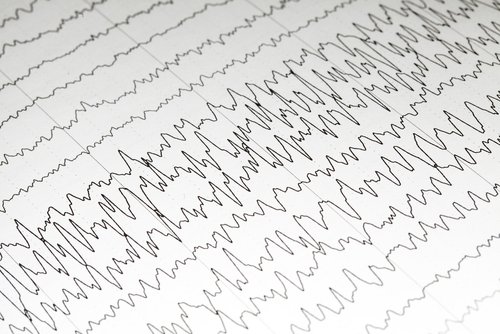Eisai Inc. will make a presentation in Boston this month on its epilepsy treatment Fycompa CIII‘s effectiveness against a range of seizure types.
Company researchers involved in the presentation at the annual meeting of the American Academy of Neurology will make the case that therapies such as Fycompa (perampanel) can be used in children as well as adults, Eisai said.
The event will demonstrate the company’s “continued commitment to people living with epilepsy and the healthcare providers who care for these patients,” Lynn Kramer, Eisai’s chief clinical officer, said in a press release. The event will run from April 22-28.
Children who suffer primary generalized tonic-clonic seizures (PGTC) are among the patients who might benefit from Fycompa, Eisai said. PGTC is a form of epilepsy characterized by violent convulsions and loss of consciousness for up to five minutes.
A review of research between 1970 and 2015 on drugs used to treat PGTC seizures suggests that the treatments were equally as effective in adults and children, Eisai said.
“Our meta-analysis evaluating the feasibility of extrapolating efficacy data from adults to children with PGTC seizures is particularly important because there has been limited research in pediatric patients due to the challenges of conducting clinical trials in children with epilepsy,” Kramer said.
Eisai focuses on developing drugs for neurodegenerative and dementia-related diseases. Based in Woodcliff Lake, New Jersey, it is a subsidiary of Tokyo-based Eisai Co.
One of its lead therapies is Fycompa. The U.S. Food and Drug Administration has approved the drug, and the U.S. Drug Enforcement Administration oversees its distribution because of its possible misuse as a narcotic.
Fycompa improves other drugs’ response to partial seizures — those that do not affect the entire body. Fycompa is also effective as an adjunctive therapy against PGTCs, the company said.
It works against partial seizures whether or not there is a secondary generalized (SG) seizure. An SG seizure starts in one area of the brain, then spreads to both sides.
Although scientists don’t fully understand how Fycompa works, they do know it blocks some brain signals, reducing the number of seizures.
Eisai’s presentation will also cover Fycompa’s interaction with Tegretol (carbamazepine), which reduces Fycompa’s concentration in the blood.
The information Eisai will discuss will come from nine studies:
- “Extrapolation of efficacy data from adults with primary generalized tonic-clonic seizures (PGTC) to pediatric patients: a meta-analysis of published clinical trials”
- “The effects of perampanel, lacosamide, and lamotrigine on secondary generalized (SG) seizures in a rat amygdala kindling model”
- “Simulation of changes in steady-state plasma concentrations of perampanel following discontinuation of the enzyme-inducing antiepileptic drug (EIAED) carbamazepine”
- “Effect of adjunctive perampanel on myoclonic and absence seizures: post-hoc analysis of data from the Extension Phase of a Phase III study in patients with idiopathic generalized epilepsy”
- “Predictions of the pharmacokinetic profile of perampanel during pregnancy using physiologically based pharmacokinetic (PBPK) modeling”
- “Assessment of the long-term efficacy and safety of adjunctive perampanel: pooled analyses of four open-label extension studies”
- “Perampanel monotherapy in epilepsy: prospective open-label extension (OLE) and retrospective uncontrolled studies”
- “Bioequivalence evaluation of perampanel oral suspension and tablet formulations in healthy subjects: a Phase I, open-label, crossover study”
- “Long-term safety and efficacy outcomes of adjunctive perampanel: an open-label extension (OLEx) of a Phase III study in patients with drug-resistant primary generalized tonic-clonic (PGTC) seizures in idiopathic generalized epilepsy (IGE)”


